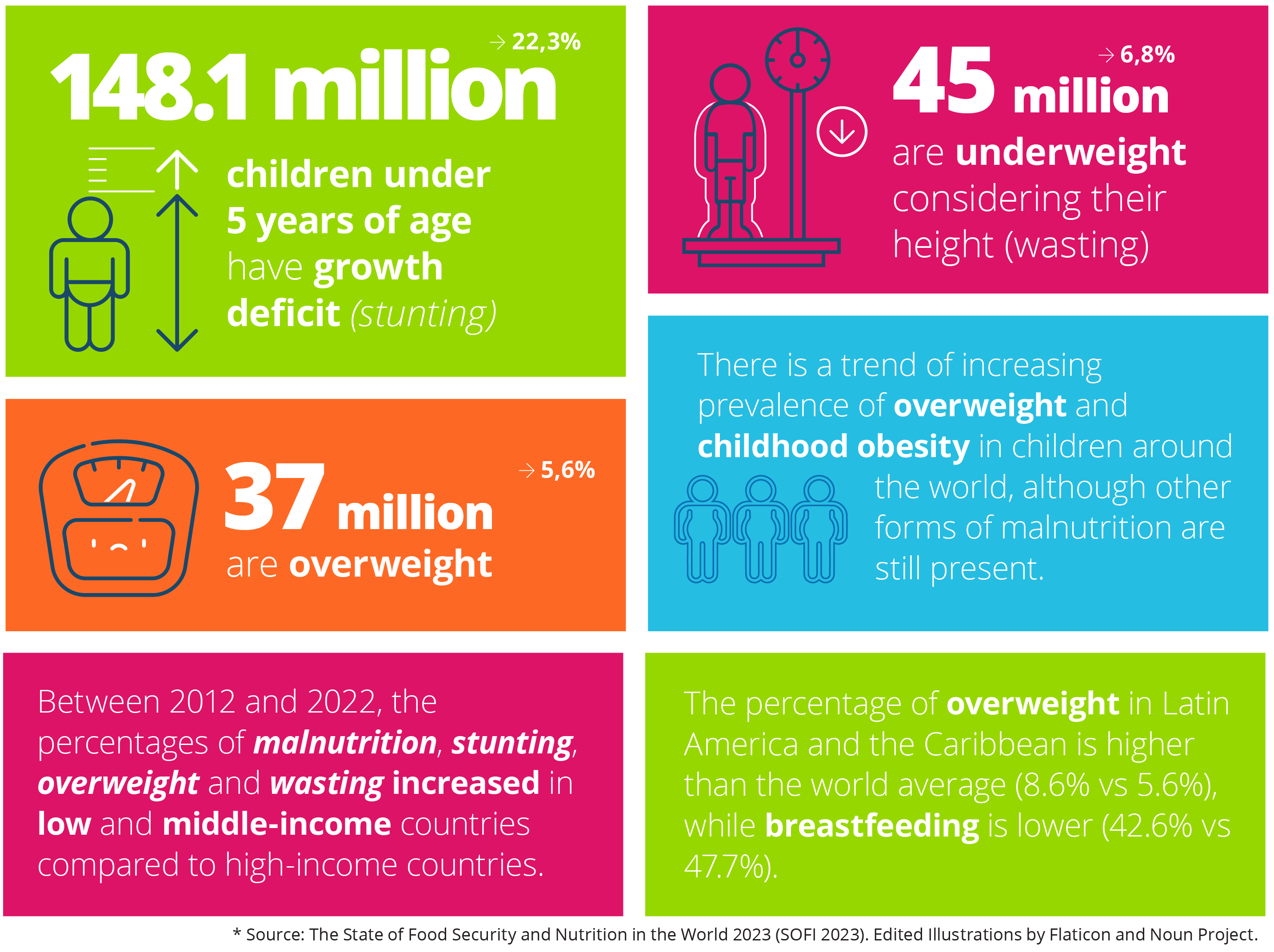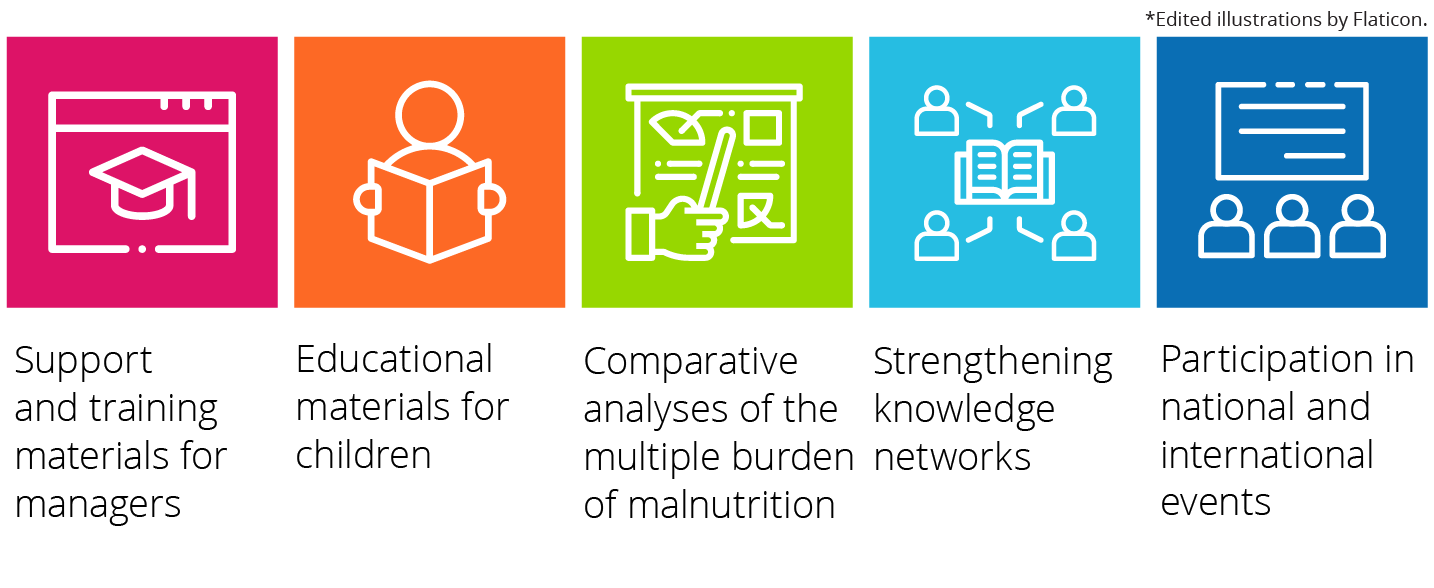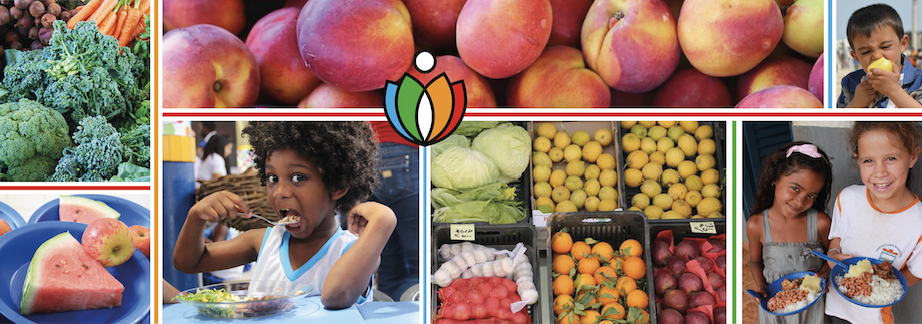
The scenario of malnutrition among children remains serious worldwide. According to the 2023 State of Food Security and Nutrition in the World report, 148 million children under five are affected by chronic malnutrition (stunting), and 45 million suffer from acute malnutrition (wasting). Despite advances in reducing malnutrition among children, the global outlook does not indicate that the goals will be achieved by 2030.
Regarding the prevalence of overweight, in 2022, 37 million cases were reported in children under 5 years old, and this clinical condition can lead to respiratory problems, hypertension, and other non-communicable chronic diseases. Given that overweight and obesity are preventable, some contributing factors to this scenario include the consumption of processed foods rich in fats, sugars, and energy, along with inadequate levels of physical activity.
The situation is more severe in low or middle-income countries, where there has been an increase in acute malnutrition and overweight in the last decade (2012 to 2022). The percentage of overweight in Latin America and the Caribbean is higher than the global average, with noteworthy percentages in South America.
The increasing prevalence of overweight in children and adolescents is observed globally. From 2000 to 2016, the proportion of overweight children (5 to 19 years of age) doubled worldwide, from 1 in 10 to almost 1 in 5 second children, UNICEF (2019). The Latin American and Caribbean region follows the same trend, with the prevalence of overweight children doubled since 1990.
These problems affect people’s health and quality of life, it also promotes social and economic consequences to families, communities (especially among the most vulnerable), and in governments decision-making.
The South-South Cooperation Project to tackle the Multiple Burden of Malnutrition in School-aged Children results from a partnership between the Ministry of Health, the WFP Centre of Excellence Against Hunger, the Brazilian Cooperation Agency, and the Ministry of Foreign Affairs. Importantly, the Ministries of Health of Colombia and Peru are also partners in this project.
This horizontal knowledge exchange, especially regarding the fight against childhood overweight and obesity, aims to support processes to strengthen national public institutions and health and nutrition sectors considered fundamental for the management of public food and nutrition policies in partner countries.
This project searches for synergies and complementarity with other Brazilian and international initiatives in the sector, as well as with other activities developed by WFP offices in Colombia and Peru.


The project was formalized in December 2019 and the first workshop with the cooperating countries took place in December 2020. During the implementation years, the collaborating entities produced several planned outputs materials for managers and educational materials for children are among the foreseen outputs. Other actions include elaborating comparative analyses to create evidence on the multiple burden of malnutrition, especially, on overweight and obesity within the countries involved. Additionally, strengthening knowledge networks and participating in national and international seminars are also expected by the project. Participation in international events also occurred to share project information with other countries.


BRAZIL
Primary Health Care (PHC), the main level of the Unified Health System (SUS) for disease prevention and control, diagnosed in 2021 that 356,000 children aged 5 to 10 in Brazil presented obesity. The highest concentration of data was in the Southern region (11.52%), followed by the Southwest (10.41%), Northeast (9.67%), Midwest (9.43%), and North (6.93%). Additionally, the Atlas of Childhood Obesity in Brazil (2019) pointed out that among children aged 6 to 23 months, 48% consumed ultra-processed foods, 32% consumed sugary drinks, 28% consumed filled cookies, sweets, or treats, and 23% consumed instant noodles, snacks, or salty biscuits.
Regarding malnutrition, data obtained from the Food and Nutritional Surveillance System (SISVAN) platform in 2023 indicated that among children aged 0 to 5 years, 1.13% had very low weight for age, and 2.57% had low weight for age. It is worth noting that the data were slightly higher among indigenous, mixed ethnicity, and black children. Malnutrition in children can lead to irreversible repercussions, such as short stature, inadequate school performance, and low productivity in adulthood, factors that promote the intergenerational transmission of poverty.
Partners

COLOMBIA
In Colombia, according to the National Nutritional Situation Survey (ENSIN, 2015) among children aged 0 to 4 years, 10.8% exhibited low height (chronic malnutrition), while 6.4% had excess weight. The numbers increase in the age group of 5 to 12 years, with 7.2% having low height and 24.4% having excess weight. In adolescence (13 to 17 years), the country recorded a 17.9% prevalence of excess weight.
Partners


PERU
According to the National Institute of Health and the Institute of Statistics and Informatics of Peru, from 2017 to 2021, the prevalence of low height was 11.5% for children aged 0 to 59 months and 20.4% for adolescents aged 12 to 17 years. Regarding excess weight, 38.4% of children aged 6 to 13 years had this comorbidity, as well as 24.8% of youths aged 12 to 17 years. For children aged 6 to 13 years, the prevalence of overweight and obesity was 22.4% and 16.0%, respectively. Lastly, among youths aged 12 to 17 years, overweight and obesity were reported at 19.3% and 5.5%, respectively.
Partners
Publications and Videos
Given this scenario and crucial actions to address malnutrition and obesity, encouraging adequate and healthy eating, reducing sedentary behaviour and physical inactivity, and actions focused on children’s health is a role of society as a whole. Due to the high prevalences, childhood obesity deserves everyone’s attention through diverse, multidimensional and intersectoral actions as demonstrated in the documents and videos below.
Over the years, the Nurture the Future project has developed policy briefs that guide public administrators and healthcare professionals on important measures to curb the advancement of childhood obesity.
 The policy “Childhood Obesity – Care and Prevention Strategies (at the local level)” contextualizes the scenario and factors contributing to the increasing promotion of obesity. It highlights key alternatives for obesity prevention (health promotion in schools, fiscal measures, among others), the role of Primary Health Care, and the importance of healthy food environments in cities.
The policy “Childhood Obesity – Care and Prevention Strategies (at the local level)” contextualizes the scenario and factors contributing to the increasing promotion of obesity. It highlights key alternatives for obesity prevention (health promotion in schools, fiscal measures, among others), the role of Primary Health Care, and the importance of healthy food environments in cities.
 The second policy focused on childhood obesity, “Prevention and Attention Actions in Brazil, Colombia, and Peru,” goes beyond the measures in the previous document. It provides information related to the importance of breastfeeding for weight gain, the impact on mental health and obesity, the relevance of actions across different sectors (health, social assistance, etc.), and the contributions of dietary guidelines and physical activity to control excess weight.
The second policy focused on childhood obesity, “Prevention and Attention Actions in Brazil, Colombia, and Peru,” goes beyond the measures in the previous document. It provides information related to the importance of breastfeeding for weight gain, the impact on mental health and obesity, the relevance of actions across different sectors (health, social assistance, etc.), and the contributions of dietary guidelines and physical activity to control excess weight.
 The third document, titled “Confronting the Multiple Burden of Malnutrition” addresses how malnutrition, namely the development of malnutrition, obesity, and/or micronutrient deficiencies, affects populations, especially the most vulnerable. Additionally, the product presents how social inequality, inadequate housing, poverty, and other factors can contribute to the multiple burdens of malnutrition. To address these synergistic determinants, the policy, aimed at public administrators, presents alternatives to mitigate these adversities.
The third document, titled “Confronting the Multiple Burden of Malnutrition” addresses how malnutrition, namely the development of malnutrition, obesity, and/or micronutrient deficiencies, affects populations, especially the most vulnerable. Additionally, the product presents how social inequality, inadequate housing, poverty, and other factors can contribute to the multiple burdens of malnutrition. To address these synergistic determinants, the policy, aimed at public administrators, presents alternatives to mitigate these adversities.
Fruits and vegetables are closely linked to the establishment of healthy, fair and sustainable food systems. This publication shares innovative experiences that strengthen the production, supply and consumption of fruits and vegetables.













